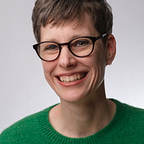Teachers make excellent strategists.
For the last few years there has been what seems like a mass exodus of teachers leaving education. Hashtags like #transitioningteachers flood my LinkedIn on a daily basis. Some leave for service positions or real estate opportunities. Some leave to be managers at Walmart. I understand why, given the increasingly low pay, low respect, and low value that teachers are experiencing throughout the United States today. I can also relate.
I began my career in academia as well, in higher education for a technical college. After 10 years I left academia behind me. But I didn’t leave teaching. In fact, it’s that teaching background that I believe has served me the most as I’ve moved upward in strategic leadership roles in the tech industry.
Teachers make excellent strategists. I’ve really nurtured my own passion and strengths in strategy for the last 5 or 6 years of my career. I didn’t consider myself a strategist until I realized that developing and executing strategy was at the heart of all of my roles, from my first days as a college instructor to my current VP of Certification Product position.
A strategist is simply someone who identifies and sets meaningful goals, develops plans to achieve those goals, understands how and when to pivot when needed, and leverage resources effectively through all stages. When you really consider that definition, you can start to see why teachers make excellent strategists. Especially those with experience in curriculum development.
The parallels between curriculum development and strategic planning astound me. In my previous role I served as the Chief Strategy Officer for an education technology company, where I led strategic planning and goal alignment across the company. At the same time, due to the nature of our business, I was developing an education framework tool that helped non-educators understand how to bring education initiatives together to define, measure, and achieve their goals. It wasn’t long before I realized how much the two worlds overlap.
Curriculum development is the art of defining clear goals for your learners and breaking down the most efficient and effective path to achieving those goals. Let’s say a teacher has to ensure their class can pass a state exam by the end of the school year. They know that’s the “north star metric” they need to achieve. The next step is identifying milestones or key objectives that the students need to reach throughout that year. They’ll consider how these objectives relate and rely on each other, and if there are outside dependencies (perhaps lessons taught in other classes) that must be considered. They’ll create the curriculum, lesson plans, and assessments to measure progress. Seasoned teachers will know how to pivot, leaning more or less into lessons depending on leading metrics (formative assessments).
For those of you outside of education, the process I just described may sound quite familiar. It’s nearly identical to strategic planning. Any strategic leader should have this same skill set. Really any product manager, program manager, or account manager should have the same skill set — among many others. And so you can see why teachers make excellent strategists and prime candidates for these roles.
There is sometimes a stigma attached to hiring teachers into non-academic roles. Some feel that they won’t be able to adapt to a fast-paced corporate environment. I certainly can’t speak for all teachers, but I can say that the differences for me between academia and corporate laid primarily in the nuances of language — what teachers call curriculum, corporates call strategic plans, what teachers call formative assessment, corporates call leading metrics, and what teachers think of as lesson plans, corporates call OKRs.
I began my career in tech at the age of 32 rather than 22, but those 10 years of teaching experience laid a pivotal foundation for me. I’ve learned quite a bit in formal settings (grad school, certificate programs) and via books and workshops, but it was teaching that truly taught me the most.
Teachers make excellent strategists.
